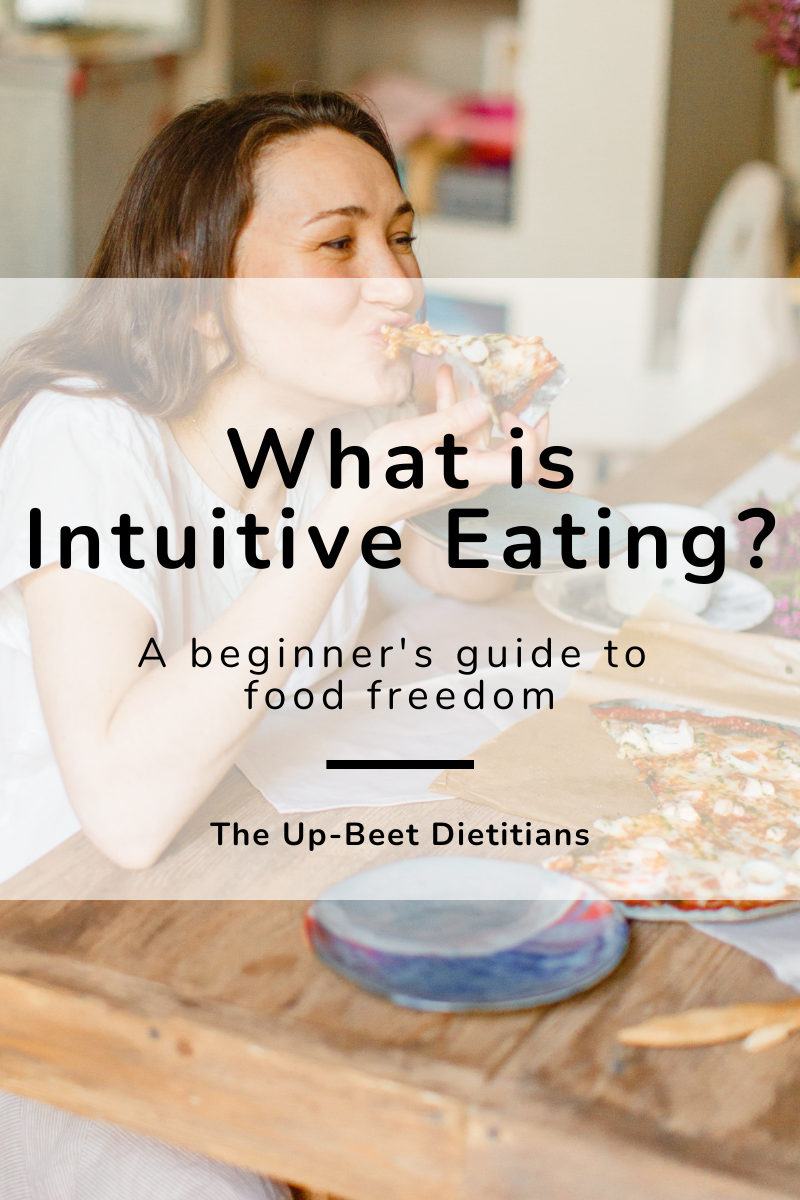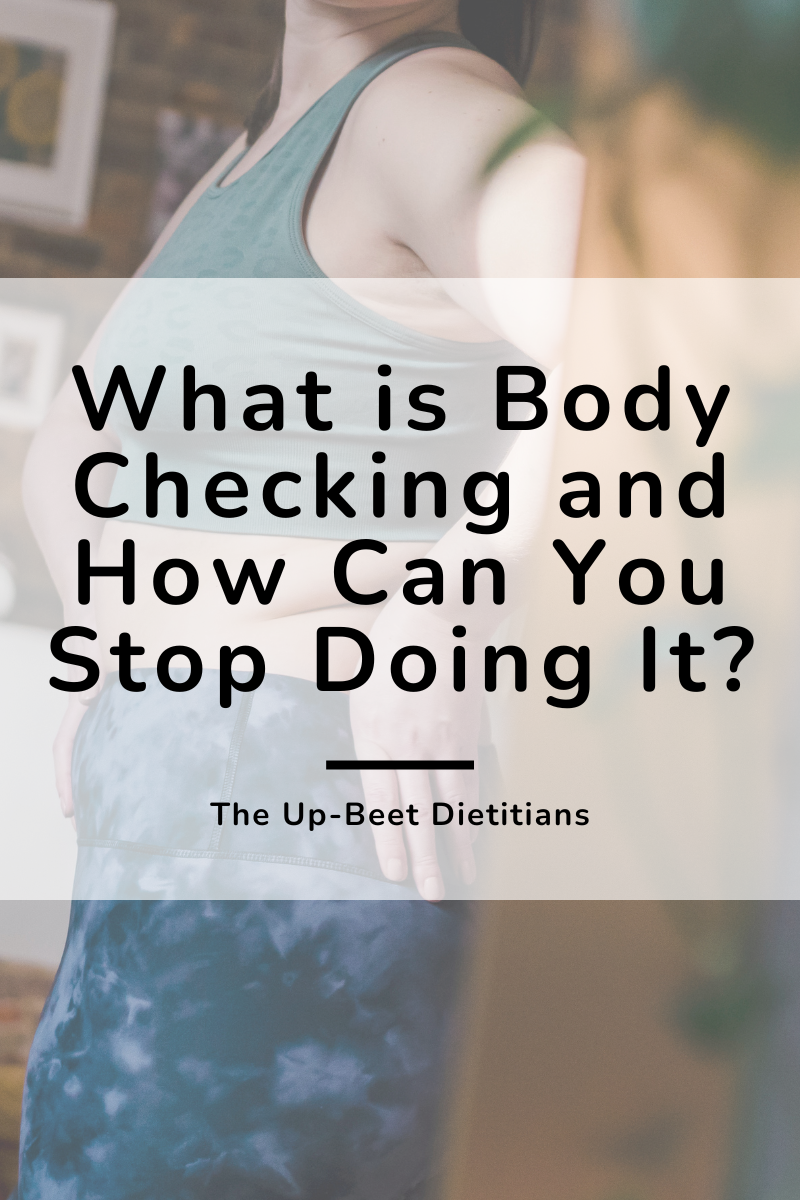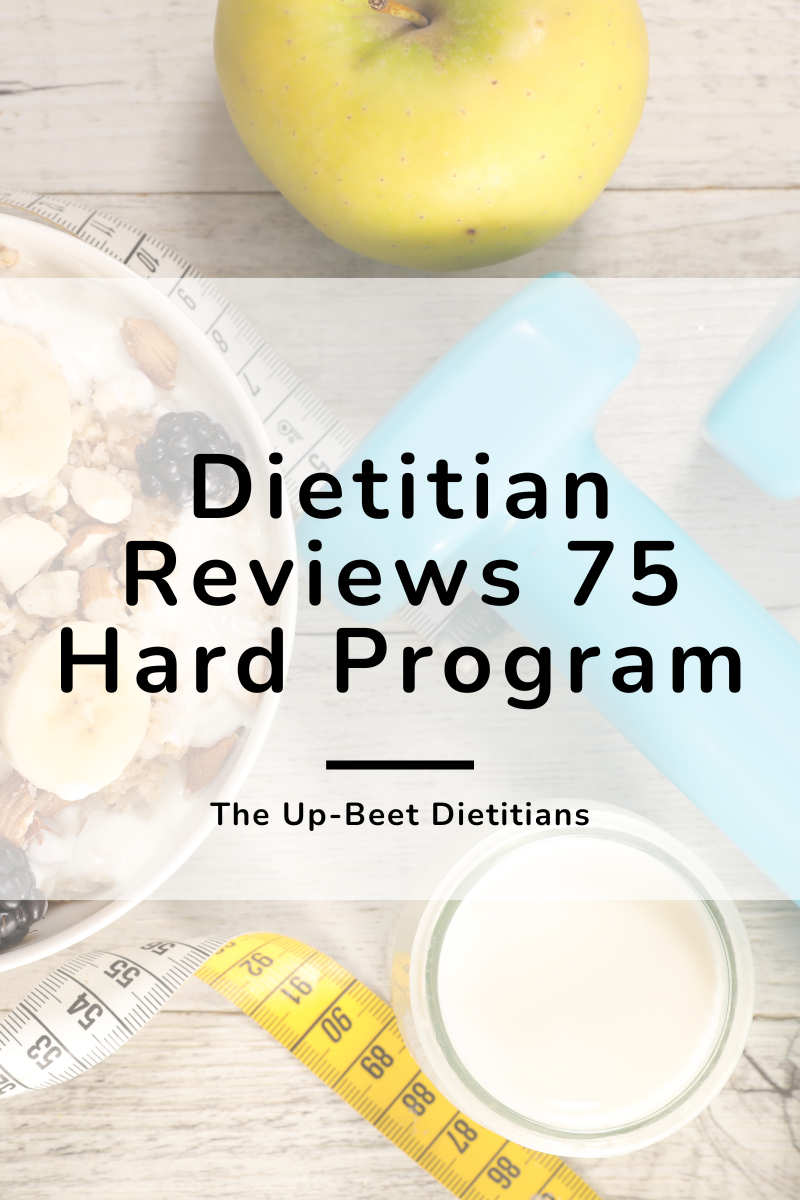What Is Intuitive Eating? A Beginner’s Guide to Food Freedom
Written by: Emily Krause, MS, RDN, LD
What does intuitive eating mean? Is Intuitive Eating the “eat whatever you want” diet?
You may have seen the phrases “non-diet” or “anti-diet” often paired with “intuitive eating” in the anti-diet culture space. You also might have heard of people “embracing intuitive eating.” But, what exactly does this mean? What even is Intuitive Eating?
The Origin of Intuitive Eating
Intuitive Eating was developed by two registered dietitians, Evelyn Tribole, MS, RDN, CEDRD-S and Elyse Resch, MS, RDN, CEDRD, FIADEP, FADA, FAND. These two individuals saw the need for a tool and self-care-based mindset for individuals to create a healthy relationship with food, their minds, and their bodies.
There have been decades upon decades of different diets that have been promoting weight loss, longevity, fat burning effects, you name it. There’s a diet for anything. After years and years of chronic dieting, so many individuals have developed a poor relationship with food that’s led them to be disconnected with their bodies and no longer find joy in eating. Intuitive Eating tackles many different aspects of health and nutrition, but improving people’s relationship with food was one of the top priorities.
What Exactly is Intuitive Eating?
Intuitive Eating is a framework of thinking that revolves around 10 principles. When individuals embrace intuitive eating, they prioritize their emotional and mental health as much as they do their physical health. It steps away from the weight loss agenda and emphasizes body neutrality and acceptance. This can feel incredibly scary when so many of us have been programmed to associate our weight with our self worth and our health.
Your body might change when you start incorporating intuitive eating because your weight was meant to settle at a different number. There is so much more to your health than your weight and intuitive eating helps you embrace this. It’s not something that will happen overnight, but with time and a great support system, your life might change for the better.
Is Intuitive Eating for You?
If you are someone that’s felt like you’ve been living your life diet-to-diet and always hyper-fixating on your weight and what you’ve been eating, intuitive eating could be for you. This revolutionary approach has changed thousands of people’s lives and so many health care professionals are starting to incorporate this methodology in their own practices.
We have a couple quick questions we’d love for you to reflect on. Do you experience hunger and fullness cues? Do you find yourself utilizing food as a coping mechanism? Are you punishing yourself through exercise? Do you respect your body?
This can feel very scary to sit down and think about it. It’s not going to be easy, and that’s okay! Luckily, there are many resources at your disposal that can help you through your journey.
Disclaimer: If you are someone diagnosed with an eating disorder, intuitive eating may not be for you. If you don’t trust yourself or your body, we highly recommend working with a trained professional like a registered dietitian and weight-inclusive therapist.
Resources to Start Your Intuitive Eating Journey
So, you may be thinking at this point - I want to begin my intuitive eating journey, but I don’t know where to start. Luckily, there are many different resources out there for you!
Read Intuitive Eating Books: One of Evelyn and Elyse’s best resources is their original book, Intuitive Eating, 4th Edition. This is one of the best ways to start learning more about intuitive eating and what it encompasses. Once you’ve read the first book, there is a workbook available too! This is a great hands-on resource for you to get your hands dirty and start reflecting on how you can incorporate intuitive eating into your life. There are many more books on intuitive eating, but we highly recommend starting off with these two.
Listen to The Up-Beet Dietitians Podcast: Our podcast tackles many different topics from reviewing the latest fad diets to embracing intuitive eating. We also bring on many different guests sharing their passions and how they fight diet culture. We release a new episode every Wednesday! You can listen to the podcast for free on Apple Podcasts, Spotify, Google Podcasts, or YouTube.
Follow Anti-Diet Dietitians on Social Media: Social media has dramatically grown over the past decade and will continue to do so. If you find yourself following individuals on social media who make you feel bad about your body or what you eat, we highly recommend unfollowing these accounts. There are so many amazing dietitians online who preach intuitive eating, weight inclusivity, and cultural inclusivity. Here are a few we love and highly recommend following on Instagram:
Seek out An Intuitive Eating Counselor: There are over 1,500 intuitive eating counselors in 38 countries who’ve gone through specialized intuitive eating training. If you’re looking to work with someone locally, this can be a great resource for you to find someone with standardized training. There are many different professions out there, so this can be an excellent resource to find anyone from a psychotherapist to a registered dietitian nutritionist who has additional intuitive eating training. Find an expert here!
Join a Community Forum: There’s an excellent intuitive eating community that is a safe space free of “diet talk,” “fat talk,” and body bashing. There are multiple discussion boards ranging from starting intuitive eating to inspiration and success stories. This is a great place to start if you’re looking for other individuals who might be in your same position.
There are a lot of resources out there, and it can feel very overwhelming. We highly recommend starting out small and finding a source of media that you enjoy the best. Whether that be reading, listening to podcasts, or browsing social media, that’s up to you! We’re so excited you’re here, though, and hope you’ll open your mind up to the Intuitive Eating world.
Want to learn more about Intuitive Eating and how to start your food freedom journey? Join our course to learn how!





